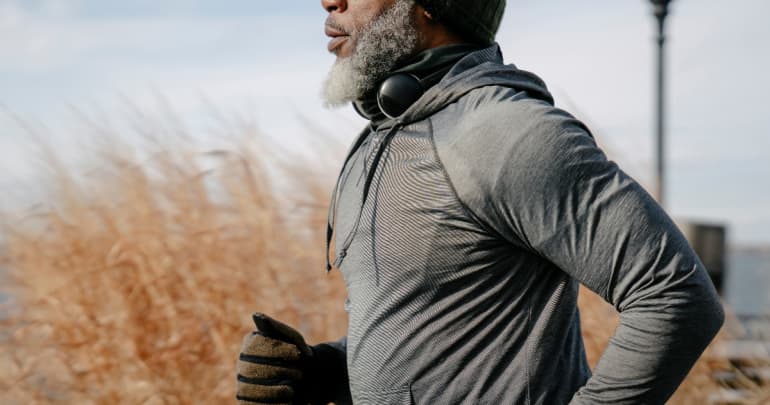Veterans transitioning to civilian life must overcome a deluge of changes, with many of these challenges arising from their time in active service. The use of addictive substances is especially common, either due to pervasive on-base cultures that may dangerously celebrate or introduce unhealthy perceptions of their use or an attempt to self-medicate the effects of traumatic experiences, mental health disorders, PTSD, and more. Moreover, the use of substances in any quantity can lead to addiction and substance use disorder (SUD), especially among veterans. While navigating urges and cravings is challenging, there are always new daily strategies that veterans can explore through our alcohol and drug rehab programs in Hawaii.
Urges and Cravings Among Veterans
Veterans of any branch of the armed forces may have a unique relationship with addictive substances stemming from a variety of stresses or challenges faced in the line of duty. Even as veterans engage in dedicated, veterans-specific treatment available at Hawaii Island Recovery, urges and cravings can still be difficult and ubiquitous experiences among veterans.
Experiencing an urge or craving to reengage with drugs or alcohol does not mean that a veteran’s recovery efforts have been in vain, or that they have somehow failed in their sober journey. Rather, it is a sign that veterans must continue to develop new ways to navigate feelings of trauma, anxiety, PTSD, depression, survivor’s guilt, and more while prioritizing a sober civilian life.
Navigating urges also means connecting veterans with peers who are overcoming their own unique challenges in civilian life. Learning new strategies from peers who not only understand the unique challenges veterans face in their journey to a fulfilling sober life but also the effort needed to pursue such goals while carrying the title of a military veteran can be a crucial perspective for successfully navigating urges and cravings.

Urges and cravings are difficult to overcome. Learn how our residential alcohol treatment and drug treatment can help by calling us today at (866) 390-5070.
More infoFinding the Best Strategies for Navigating Urges
Each veteran will have their own best collection of strategies for overcoming urges, and having multiple practiced strategies can help mitigate the chances of slips or relapse in recovery. Communicating with fellow veterans and sharing in each veteran’s personal journey can help introduce new daily strategies that may further each veteran’s ability to navigate and overcome the effects of urges.
Practicing Mindfulness Strategies
Mindfulness strategies are essential to help veterans mentally, emotionally, and physically situate themselves in the present moment. Past experiences, traumas, and challenges can continue to impact veterans even long after they have been successfully discharged from active duty. Between flashbacks and pervasive emotional challenges, the past experiences of veterans can inform daily civilian life and the prevalence of urges to engage with addictive substances.

By using daily mindfulness practices like breathing techniques, grounding strategies such as naming objects in a person’s environment, or spiritual practices to better explore how a person’s body and mind may be reacting to certain stresses, veterans can better understand when urges may be more prevalent and distance themselves from past stresses and the urges and cravings they may present.
Stay Engaged While Navigating Urges
Hobbies are not just a way to explore personal identity and find new outlets in civilian life, but they also serve a direct purpose throughout all stages of recovery. Distracting oneself by physically engaging with something of interest can help the mind distance itself from thoughts of addictive substances or otherwise romanticize the use of drugs or alcohol.
For some, having an at-home and accessible hobby can be an amazing benefit. Finding personal ways to distract oneself when noticing the onset of an urge or craving, such as going for a jog, walking the dog, reading, putting on a favorite song or album, or contacting family or supports to help otherwise distract and process urges and cravings at home. Urges and cravings can be intense, but they do pass in time, and keeping the mind and body engaged with other activities can empower veterans to navigate urges and cravings successfully.
Use Positive Affirmations
Urges and cravings can be intense, impulsive desires to reengage with addictive substances, and such intense feelings can make it difficult to focus on the purpose and progress of each veteran’s sober journey. Consistently repeating positive affirmations throughout the day – either through positive self-talk or leaving messages or mantras to oneself in regular places – can help to maintain a healthy focus on each veteran’s sober efforts.
These positive affirmations can not only continue to motivate veterans to push through urges and cravings while focusing on their sobriety, but can also empower veterans to take pride in their progress, motivating each individual toward their next sober milestone even amidst times of turmoils, stress, and impulsive cravings to reengage with drugs or alcohol.

Physical fitness can translate to effective mental and emotional health practices. Embrace a physical component to your recovery by calling (866) 390-5070.
More infoReflect on the Situation
Navigating urges and cravings can be difficult, and looking back on past urges and cravings can help veterans prepare to process them safely in the future. Journaling urges, the situations and stresses that may have been present, and discussing the circumstances and context of these experiences with family, friends, and peers at Hawaii Island Recovery can empower veterans to adjust their daily strategies and best prepare for navigating urges and cravings in the future.
Urges and cravings can be exceptionally difficult to overcome, especially among veterans still navigating their transition from active duty to a fulfilling and sober civilian life. At Hawaii Island Recovery, we champion the opportunity to serve those who have served this country with the most pertinent and effective treatment possible. With a community of veteran peers and trauma-informed professionals, we can help you challenge and overcome the prevalent urges and cravings that may otherwise impact daily civilian life. For information on how we can personalize alcohol and drug rehab programs in Hawaii for your needs, or to speak to a caring, trained staff member about your needs in recovery, call (866) 390-5070.
 Hawaii Island Recovery
Hawaii Island Recovery 










